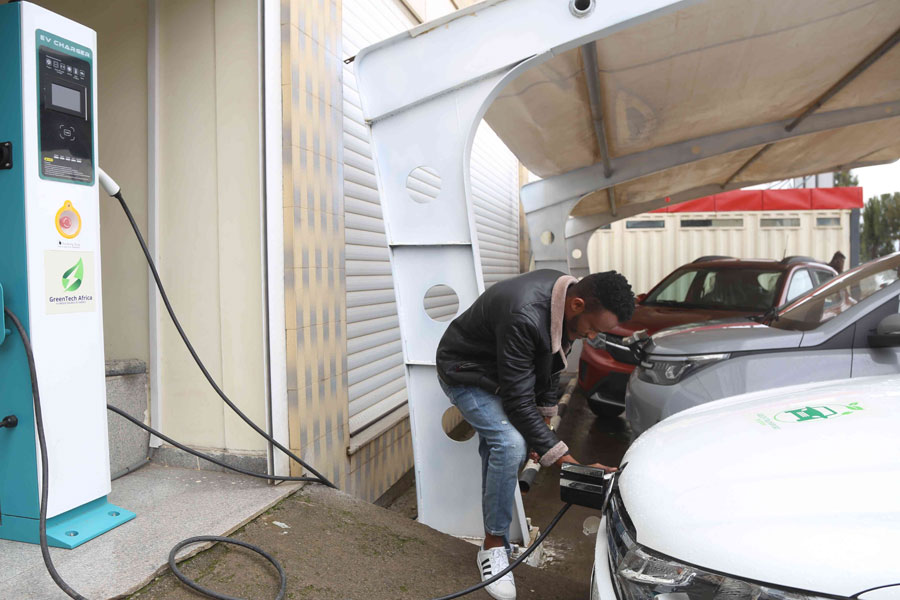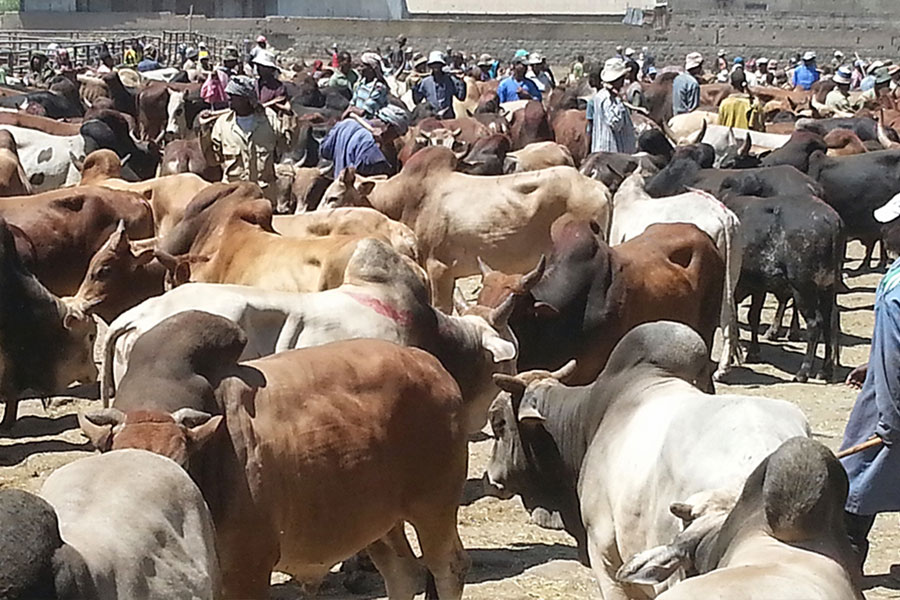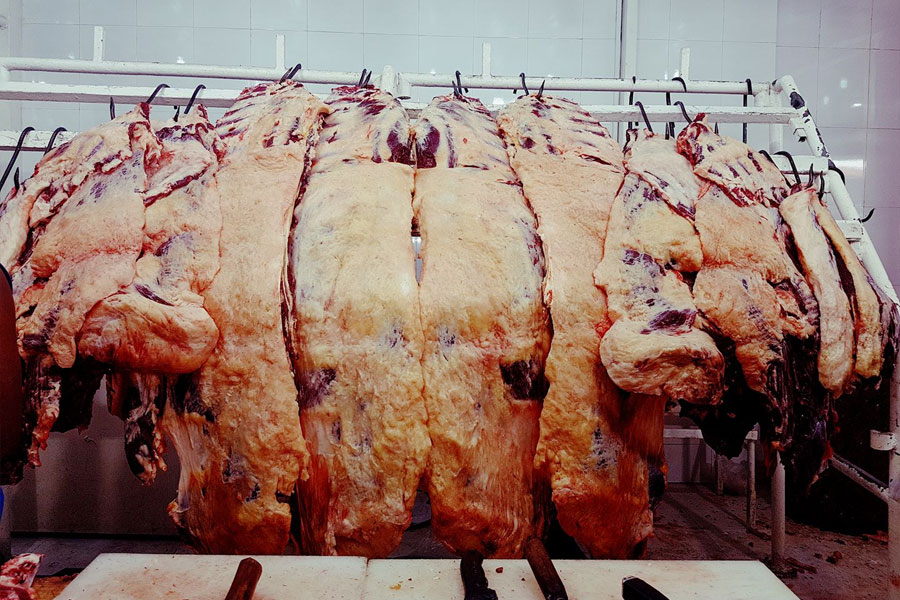
Radar | Aug 27,2022
Last Tuesday, March 12, 2019, 20-something Selam Tadesse was in Haya Hulet with a cousin and her younger brother to purchase a new car. For the last four years, she has been sharing a car with her father but now believes she needs her own.
“It is a necessity, especially in Addis Abeba, where getting from place to place is almost impossible,” she says.
She has recently secured a sizable commission from her full-time job as a real estate sales supervisor, which meant that she can afford a car and no longer needs to depend on her father.
She has been in the car market since Saturday when she went to Haya Hulet believing that the dealers there have a good price.
“I don’t know much about cars, which is why I went with my brother,” said Selam.
She was surprised to find out that the car market was even more different than she expected, and car prices have been climbing.
Toyata Vitzs and Yaris models have appreciated by an average of 30,000 Br, while Corolla models have increased by an average of 70,000 Br from their prices just two months ago.
The 2001 Toyota Vitz model is selling for around 370,000 Br, while the 2004 model had a price tag of 390,000 Br. The Yaris Compact was being sold for an average price of 450,000 Br. The different Toyota Corolla models were being sold for between 610,000 Br and 900,000 Br.
Even though prices have increased, Selam still went ahead with her decision to buy a car.
“My heart was set on it,” she said.
The increase in used car prices came after reports stated that the government would soon restrict the import of cars older than a decade.
She chose Magnus Car Importer & Sales Shop, located around Adey Abeba Stadium, to buy her car. Magnus Car is a car dealership that opened six years ago and has an inventory of about 30 cars that cost between 370,000 Br to 1.7 million Br.
Selam bought a Yaris Compact, which set her back 428,000 Br.
“I know I bought the car for a price that is way below market price,” says Selam. “We were given a discount as my brother also bought his car from the same place a year ago.”
Selam was lucky, but most other buyers have paid higher prices in the past two months. Besides constant foreign currency shortages, it is speculation that car dealers and importers point to as a reason for the current inflated prices.
This has to do with a report that the government would soon restrict the import of cars older than a decade, which includes all Toyota models of Vitz, Yaris and Corolla. Prices rose as a result of speculation that the law will begin being enforced, causing the supply of new models to be reduced and pushing prices up.
The report that has jostled the industry is not entirely untrue, if not exactly new. As early as the start of this decade, the government had begun studies to limit and discourage the import of second-hand cars into the country.
“The country has been a dumping ground for old vehicles,” says Haji Ibsa, communications director of the Finance Ministry. “We want to set a limit on the importation of used vehicles to support local car assemblers, reduce traffic accidents and limit air pollution caused by these cars.”
The Ministry has stepped up its efforts ever since. A tripartite committee that consisted of representatives from the Federal Transport Authority, Ministry of Revenues and Finance Ministry was formed to prepare a study.
“We can’t completely ban the use of old cars. That would be violating people’s economic rights,” says Haji. “We can only levy higher duties to discourage imports.”
The study has not been finalised yet, but the government is moving toward implementing new excise taxes depending on the age of vehicles, according to sources inside the Finance Ministry.
“The issue is still not decided and could be subject to change,” said Haji. “Commenting beforehand could negatively affect the car market, which is already seeing a spike in prices.”
But for Aman Desta, a car dealer who has been in the business for half a decade, the increase in the price of cars is attributable to under-invoicing practices.
Until October 2017, importers would bring cars into the country whose value was higher than the letter of credit they secured. In a bid to address this problem, the National Bank of Ethiopia introduced a system to curb under-invoicing, where the price of each item that is imported has to be correlated to its corresponding letter of credit.
But the central bank allowed the banks to clear under-invoiced transactions that the banks already gave permits to before October 2017. Aman believes this was abused until the bank phased it out a year later.
"To get an advantage of the few letters of credit they have been left with, importers began bringing in more cars than usual,” said Aman. “As the demand from Ethiopia grew, it was inevitable that the dealerships they source from in Dubai proceeded to increase their prices.”
Around 85pc of imported vehicles in Ethiopia are secondhand, of which almost 90pc are Toyota, according to Deloitte Africa Automotive Insights. These vehicles are imported primarily from the UAE through the Port of Djibouti.
Dubai has become an international trading hub in used cars owing to a relaxed tax regime on vehicles, which car dealerships that re-export vehicles to Africa and Asia thrive in.
The used car market in the UAE is estimated to be valued at almost 2.5 billion dollars and has been growing 15pc annually.
Most of the used cars in Dubai are imported from Japan and Germany, where safety and environmental regulations do not allow extended ownership of the same vehicle, as it does in most developing countries.
Used Japanese cars, about a million of which are exported annually, are sold online in auto auctions. In Japan, a 2001 Toyota Vitz sells for as low as 750 dollars. Dealerships in Dubai usually buy them, where they get serviced, and their steering wheels are moved to the left side of the vehicle maintained.
The price of the same model vehicle would be at least 2,200 dollars when it is sold in Dubai. Transportation costs, duties and the importers' own profit margins drive costs much higher once they arrive in African and Asian countries.
A 2001 Toyota Vitz model costs around 8,000 dollars in Kenya, while the cost is about 6,500 dollars in Pakistan, though it is now double that in Ethiopia.
What accounts for this are the high tariff costs in Ethiopia, where vehicles for private use are taxed up to 300pc of their value depending on engine capacity, measured in terms of cubic centimetres.
Ethiopia’s government has a longstanding policy on discouraging the import of vehicles to save on foreign currency costs and to keep fuel consumption at a minimum. It is a method that is also expected to be employed to discourage the import of older model cars into Ethiopia.
”Such a move by the government would be both economically and environmentally wise, but it also has to be followed by a significant decrease on the taxes levied on new cars,” said Atlaw Alemu (PhD), head of Department of Economics at Addis Abeba University. “In addition, such actions are pointless if the state doesn’t work on its public transportation and roads.”
There are four African countries with a total ban on used car imports, while 16 countries have imposed higher taxes on the importation of cars older than a decade.
Ethiopia incurs an additional 200 million dollars in annual fuel costs due to the fuel inefficiency of used cars, while the vehicles also accounted for seven percent of the country’s carbon emissions, according to a study made when the nation had around 600,000 vehicles.
Currently, there are around 975,000 vehicles in Ethiopia, a number that is growing at an annual rate of 10pc. One of them will be officially owned by Selam as soon as she finalises processing insurance and license plate documents. She is more excited about taking her Yaris Compact for a cruise than worrying about the inflated prices in the market.
“Now if the price of cars goes up, mine will increase too,” she said with a smile.
PUBLISHED ON
Mar 16,2019 [ VOL
19 , NO
985]

Radar | Aug 27,2022

Agenda | Jul 30,2022

Viewpoints | Aug 27,2022

Radar | Aug 03,2025

Fortune News | Jan 29,2022

Agenda | Jul 18,2020

Radar | Jul 27,2025

Life Matters | Jul 22,2023

Fortune News | May 08,2021

Radar | Aug 26,2023

Dec 22 , 2024 . By TIZITA SHEWAFERAW
Charged with transforming colossal state-owned enterprises into modern and competitiv...

Aug 18 , 2024 . By AKSAH ITALO
Although predictable Yonas Zerihun's job in the ride-hailing service is not immune to...

Jul 28 , 2024 . By TIZITA SHEWAFERAW
Unhabitual, perhaps too many, Samuel Gebreyohannes, 38, used to occasionally enjoy a couple of beers at breakfast. However, he recently swit...

Jul 13 , 2024 . By AKSAH ITALO
Investors who rely on tractors, trucks, and field vehicles for commuting, transporting commodities, and f...

Oct 18 , 2025
The political establishment, notably the ruling party and its top brass, has become p...

Oct 11 , 2025
Ladislas Farago, a roving Associated Press (AP) correspondent, arrived in Ethiopia in...

Oct 4 , 2025
Eyob Tekalegn (PhD) had been in the Governor's chair for only weeks when, on Septembe...

Sep 27 , 2025
Four years into an experiment with “shock therapy” in education, the national moo...